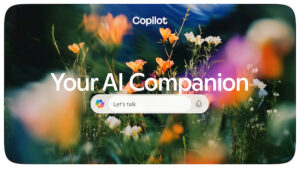An Overview of Meta AI: Essential Information About the Social Network’s AI Tools

Understanding Meta AI: Elevating Your Digital Experience
Meta AI is becoming an integral part of popular social media platforms like Facebook, Instagram, WhatsApp, and Messenger. It enhances user interactions by assisting with tasks like post suggestions and image editing.
What is Meta AI?
Meta AI, previously known as Facebook Artificial Intelligence Research, was rebranded alongside the company when it became Meta in October 2021. The primary objective of Meta AI is to act as a personal virtual assistant, providing seamless access to its various AI models within Meta’s suite of applications. At the Connect 2024 event, Meta showcased its commitment to making AI tools engaging and user-friendly.
The Role of Meta AI in Your Applications
Meta AI is not just a chatbot; it represents a broad suite of AI technologies aimed at transforming social interactions. Its capabilities include:
- Analyzing Images: Users can take photos and ask Meta AI to identify objects or provide editing suggestions.
- Multilingual Support: The assistant can communicate in multiple languages like English, Spanish, French, German, Hindi, and more.
- Intuitive Search Features: AI enhances content discovery by personalizing search results according to user behavior.
In contrast to Google’s AI tools, which primarily enhance productivity, Meta AI integrates into daily social communications, making it a subtle but essential part of how users connect.
Recent Developments in Meta AI
Multimodal Functionality
Meta AI has evolved to include multimodal capabilities, allowing it to handle various types of inputs such as text and images. This transformation enables effective responses to complex inquiries and tasks.
AI Integration in New Devices
One of the innovative demonstrations of Meta AI’s multimodal features is found in Ray-Ban Meta smart glasses. These glasses offer functionalities like:
- Real-Time Translation: These glasses can translate spoken words into your preferred language, enabling seamless communication.
- Enhanced Navigation: Users can ask the glasses to navigate to locations or to store information like the parking spot.
Other devices, like the Meta Quest S3 virtual reality headset, make use of expanded AI features, blurring the lines between augmented reality and everyday experiences.
Customizable AI Options
In the U.S., users can now design custom AI chatbots as part of their branding or interaction strategy. This feature allows businesses to engage with followers in unique and interactive ways without needing extensive programming skills.
AI Studio Feature
The AI Studio feature is tailored for users to create custom AI characters, facilitating engagement with customers in a more personalized manner. All AI-generated responses will be clearly marked, ensuring transparency in communication.
The Technology Behind Meta AI
Meta AI’s capabilities are powered by the Llama (Large Language Model Meta AI), which represents a sophisticated family of language models designed for understanding and generating human-like text. The latest iteration, Llama 3.2, is an open-source model allowing for advanced applications requiring visual comprehension.
Key aspects of Llama 3.2 include:
- Parameters: The model exists in various configurations, with the number of parameters (from 8 billion to 70 billion) reflecting its processing capacity.
- Future Enhancements: Meta plans to introduce smaller models optimized for mobile devices and wearables, broadening accessibility.
Current Availability and Global Expansion
Meta AI is currently active in 21 countries, including India, Canada, and Australia, but it isn’t yet available within the European Union. The company has indicated a willingness to engage with regulatory frameworks like the EU’s AI Pact, which emphasizes data transparency in AI operations.
User Interaction Statistics
As of now, over 400 million users interact with Meta AI each month, with a significant portion regularly using its functionalities across various platforms. Meta aims to solidify its impact by continuing to enhance these services into the future.
Overall, Meta AI embodies a significant step forward in integrating artificial intelligence into everyday digital experiences, ultimately changing how people communicate and interact online.






